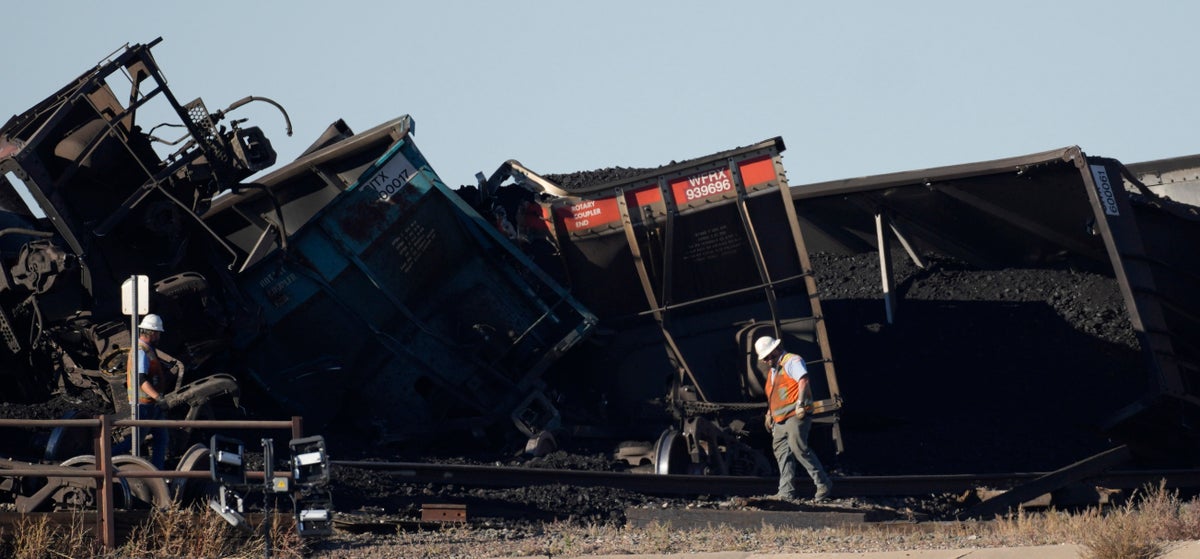
An investigation into a Colorado coal train derailment and bridge collapse that killed a truck driver is focused on whether inspection and maintenance practices at BNSF Railway contributed to the accident, federal officials said Thursday.
The steel bridge built in 1958 collapsed onto Interstate 25 Oct 15, when a broken rail caused 30 cars from a BNSF Railway train hauling coal to derail, the National Transportation Safety Board said based on preliminary findings.
The accident just north of the city of Pueblo closed the main north-south highway through Colorado for four days while crews cleared hundreds of tons of coal and mangled railcars.
Killed in the accident was Lafollette Henderson, 60, of Compton, California, who had been driving under the bridge.
Broken rails and other track problems are a leading cause of derailments, according to federal accident data.
The BNSF train was travelling about 32 mph (52 kph) — below the 45 mph (72 kph) limit for the area, the NTSB said.
BNSF has said it conducted track infrastructure testing and visual inspections of the rail line in the area of the bridge collapse within the last three months, including an inspection on the day of the accident. Company representatives did not immediately respond to questions about Thursday's report.
Pressure for the railroad industry to improve safety has grown since a February derailment of a train hauling toxic chemicals that triggered evacuations in Ohio and Pennsylvania. There were more than 12,400 train derailments in the U.S. in the past decade, or more than 1,200 annually, according to Federal Railroad Administration data based on reports submitted by railroads.







